In the ever-evolving automotive landscape, the battle between traditional luxury SUVs and cutting-edge electric vehicles is becoming increasingly fierce. In this head-to-head comparison, we delve into the pros and cons of the BMW X5, a stalwart in the luxury SUV segment, against the innovative XPeng G9, a strong contender from the electric vehicle space. Buckle up as we explore their technical specifications, performance, and state-of-the-art features.
BMW X5 vs XPeng G9 - Differences and prices compared
Compare performance (625 HP vs 575 HP), boot space and price (77100 £ vs 51100 £ ) at a glance. Find out which car is the better choice for you – BMW X5 or XPeng G9?
Performance and Powertrain
The BMW X5 offers a versatile lineup of engines, including Diesel MHEV, Petrol MHEV, and Plugin Hybrid options. With power outputs ranging from 298 HP to a staggering 625 HP, drivers can choose a model that fits their needs. The X5’s turbocharged engines deliver not only robust performance but also impressive fuel efficiency, with consumption figures spanning from 7.4 to 12.9 L/100km.
On the electric side, the XPeng G9 showcases its prowess with a fully electric powertrain. It offers power figures between 313 HP and 551 HP, which propel the G9 from 0 to 100 km/h in as little as 3.9 seconds. This acceleration is remarkable, especially for an electric SUV. The G9 boasts a commendable electric range, reaching up to 570 km, which means fewer charging stops on long journeys.
Interior Comfort and Technology
step inside the BMW X5, and you’re enveloped in a world of luxury. With space for five passengers and a trunk capacity of up to 650 L, it's designed for comfort and practicality. The cabin is rich in premium materials and sophisticated tech, including a high-resolution infotainment system and advanced driver assistance features. The X5 is renowned for its high seating position, providing a commanding view of the road.
The XPeng G9, while slightly smaller in dimensions, features a modern and minimalistic interior design. It also accommodates five passengers and offers a trunk capacity of 660 L, making it competitive in this area. The G9 is packed with cutting-edge technology, including a suite of intelligent driving features and a comprehensive infotainment system that seamlessly integrates with smartphones. Its focus on digital functionality provides a unique user experience, appealing to tech-savvy consumers.
Safety and Efficiency
In today's automotive market, safety is paramount. The BMW X5 has consistently received high safety ratings, benefiting from a multitude of advanced safety features such as adaptive cruise control, lane-keeping assist, and a robust airbag system. With CO2 emissions ranging from 194 to 291 g/km, it presents a reasonable trade-off between power and environmental impact.
Conversely, the XPeng G9 boasts a CO2 efficiency class of A, a testament to its zero-emission design. It incorporates numerous safety features, including automated emergency braking, 360-degree camera systems, and extensive driver assistance technology, ensuring passengers are well-protected on every journey.
Conclusion: Which SUV Reigns Supreme?
Deciding between the BMW X5 and the XPeng G9 ultimately comes down to prioritizing preferences. The X5 is an excellent choice for those who value traditional luxury paired with powerful performance and a comprehensive tech suite. Meanwhile, the XPeng G9 appeals to the environmentally conscious driver seeking innovative technology and the perks of electric driving without sacrificing performance.
Both models are impressive in their own right, pushing the boundaries of what luxury SUVs can offer. As the automotive landscape continues to shift, both the BMW X5 and XPeng G9 represent significant epochs in their respective categories, captivating enthusiasts with their unique innovations and differentiating strengths.
Here’s where it gets real: The technical differences in detail
Costs and Efficiency:
When it comes to price and running costs, the biggest differences usually appear. This is often where you see which car fits your budget better in the long run.
XPeng G9 has a significantly advantage in terms of price – it starts at 51100 £ , while the BMW X5 costs 77100 £ . That’s a price difference of around 25972 £.
As for electric range, the XPeng G9 performs significantly better – achieving up to 585 km, about 480 km more than the BMW X5.
Engine and Performance:
Under the bonnet, it becomes clear which model is tuned for sportiness and which one takes the lead when you hit the accelerator.
When it comes to engine power, the BMW X5 has a barely noticeable edge – offering 625 HP compared to 575 HP. That’s roughly 50 HP more horsepower.
In acceleration from 0 to 100 km/h, the BMW X5 is slight quicker – completing the sprint in 3.90 s, while the XPeng G9 takes 4.20 s. That’s about 0.30 s faster.
In terms of top speed, the BMW X5 performs slightly better – reaching 250 km/h, while the XPeng G9 tops out at 200 km/h. The difference is around 50 km/h.
There’s also a difference in torque: BMW X5 pulls hardly perceptible stronger with 750 Nm compared to 695 Nm. That’s about 55 Nm difference.
Space and Everyday Use:
Cabin size, boot volume and payload all play a role in everyday practicality. Here, comfort and flexibility make the difference.
Both vehicles offer seating for 5 people.
In curb weight, XPeng G9 is minimal lighter – 2210 kg compared to 2240 kg. The difference is around 30 kg.
In terms of boot space, the XPeng G9 offers minimal more room – 660 L compared to 650 L. That’s a difference of about 10 L.
In maximum load capacity, the BMW X5 performs a bit better – up to 1870 L, which is about 294 L more than the XPeng G9.
Who wins the race in the data check?
The XPeng G9 holds a decisive overall lead in the objective data comparison.
This result only shows which model scores more points on paper – not which of the two cars feels right for you.
Costs and Consumption
View detailed analysis
Engine and Performance
View detailed analysis
Dimensions and Body
View detailed analysis
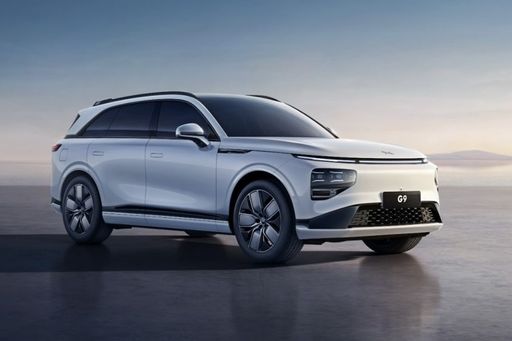
XPeng G9
BMW X5
The BMW X5 blends athletic handling with a roomy, premium interior, feeling equally at home on twisty country roads and the school-run car park. Its executive-lounge cabin and confident road presence make it a tempting choice for buyers who want comfort, capability and just a little bit of bragging rights.
details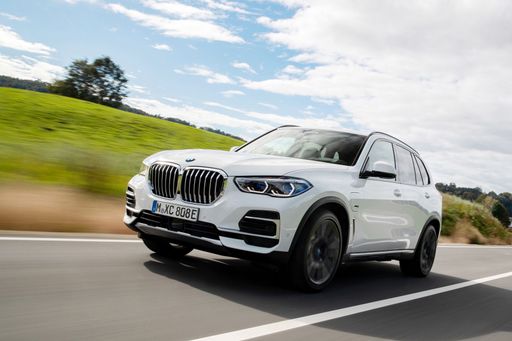
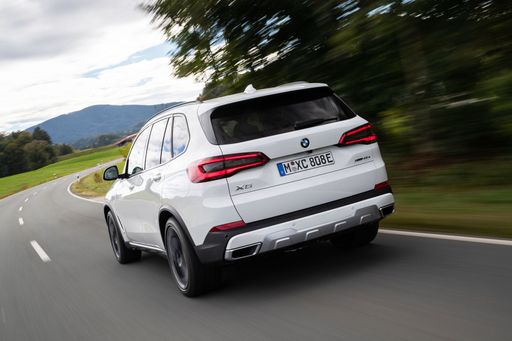
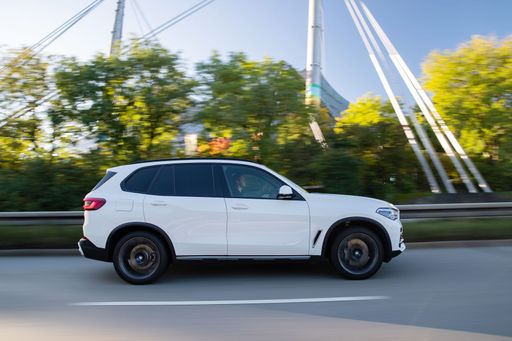
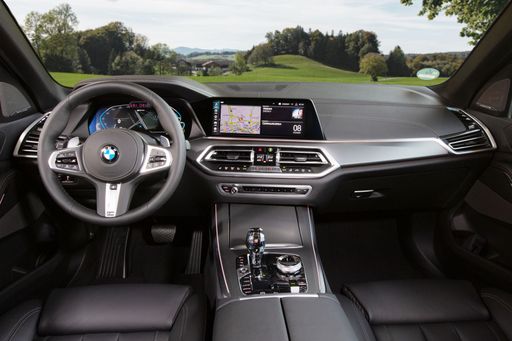
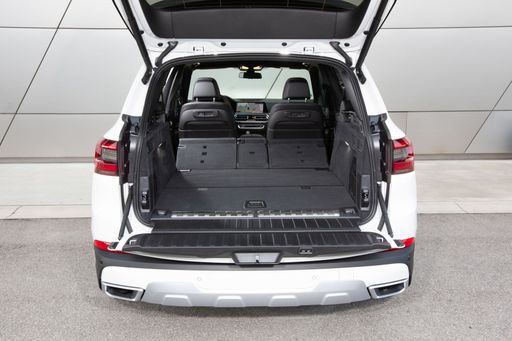
XPeng G9
The XPeng G9 feels like a confident leap into the electric SUV world, with sleek, purposeful styling and an interior that mixes modern tech with everyday comfort. On the road it’s calm and composed, serving up effortless pace and hushed refinement that turns long commutes into something you might actually enjoy — a strong pick for buyers who want electric convenience without compromise.
details
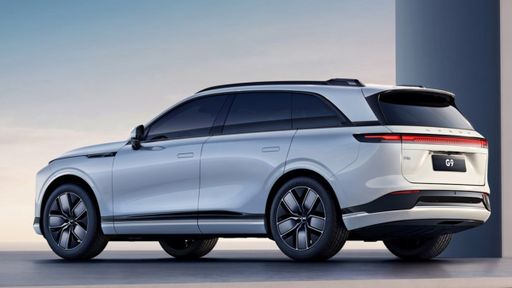
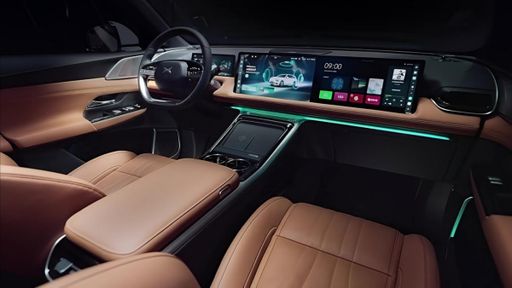
Costs and Consumption |
|
|---|---|
|
Price
77100 - 143500 £
|
Price
51100 - 62200 £
|
|
Consumption L/100km
3 - 12.8 L
|
Consumption L/100km
-
|
|
Consumption kWh/100km
-
|
Consumption kWh/100km
18.4 - 20.1 kWh
|
|
Electric Range
105 km
|
Electric Range
502 - 585 km
|
|
Battery Capacity
25.70 kWh
|
Battery Capacity
78.2 - 92.2 kWh
|
|
co2
68 - 289 g/km
|
co2
0 g/km
|
|
Fuel tank capacity
69 - 83 L
|
Fuel tank capacity
-
|
Dimensions and Body |
|
|---|---|
|
Body Type
SUV
|
Body Type
SUV
|
|
Seats
5
|
Seats
5
|
|
Doors
5
|
Doors
5
|
|
Curb weight
2240 - 2495 kg
|
Curb weight
2210 - 2395 kg
|
|
Trunk capacity
500 - 650 L
|
Trunk capacity
660 L
|
|
Length
4935 mm
|
Length
4891 mm
|
|
Width
2004 - 2015 mm
|
Width
1937 mm
|
|
Height
1755 - 1765 mm
|
Height
1670 - 1680 mm
|
|
Max trunk capacity
1720 - 1870 L
|
Max trunk capacity
1576 L
|
|
Payload
565 - 705 kg
|
Payload
-
|
Engine and Performance |
|
|---|---|
|
Engine Type
Petrol MHEV, Diesel MHEV, Plugin Hybrid
|
Engine Type
Electric
|
|
Transmission
Automatic
|
Transmission
Automatic
|
|
Transmission Detail
Automatic Gearbox
|
Transmission Detail
Reduction Gearbox
|
|
Drive Type
All-Wheel Drive
|
Drive Type
Rear-Wheel Drive, All-Wheel Drive
|
|
Power HP
298 - 625 HP
|
Power HP
351 - 575 HP
|
|
Acceleration 0-100km/h
3.9 - 6.1 s
|
Acceleration 0-100km/h
4.2 - 6.6 s
|
|
Max Speed
250 km/h
|
Max Speed
200 km/h
|
|
Torque
540 - 750 Nm
|
Torque
465 - 695 Nm
|
|
Number of Cylinders
6 - 8
|
Number of Cylinders
-
|
|
Power kW
219 - 460 kW
|
Power kW
258 - 423 kW
|
|
Engine capacity
2993 - 4395 cm3
|
Engine capacity
-
|
General |
|
|---|---|
|
Model Year
2025
|
Model Year
2025
|
|
CO2 Efficiency Class
G, B
|
CO2 Efficiency Class
A
|
|
Brand
BMW
|
Brand
XPeng
|
Is the BMW X5 offered with different drivetrains?
The BMW X5 is available as All-Wheel Drive.
